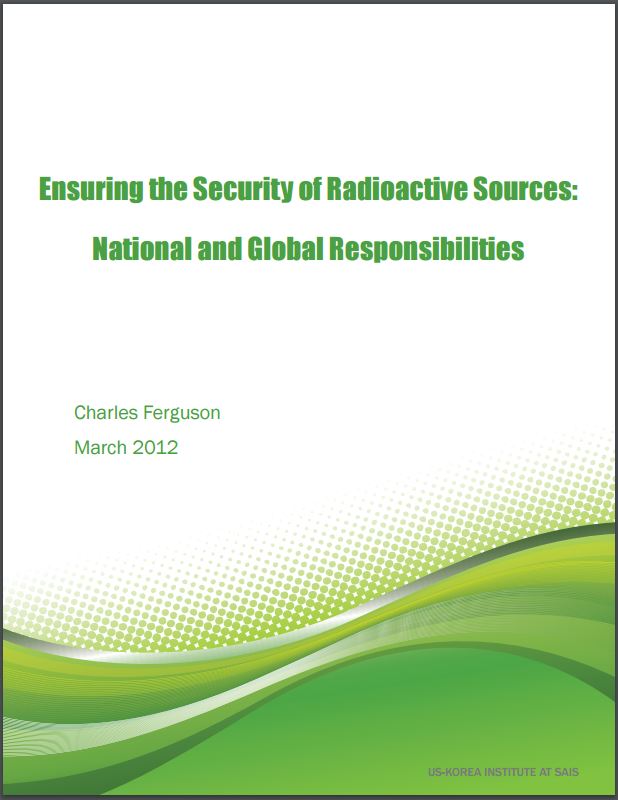Ensuring the Security of Radioactive Sources: National and Global Responsibilities

For most of human existence, people were unaware of the powerful nuclear forces deep inside atoms, although they were exposed to natural background radiation derived from these forces. Not until the end of the 19th century did the first “nuclear scientists,” notably Henri Becquerel and Marie and Pierre Curie, discover energetic rays emanating from certain types of atoms due to these forces. Because of its relative natural abundance and its powerful radiation, radium became a workhorse radioactive substance for the first half of the 20th century.
In this report, FAS President Charles Ferguson examines the national and international efforts to control and secure radioactive materials. He provides background on the basic principles of the science of ionizing radiation and radioactive materials; a risk assessment of the safety and security of these materials; a discussion of various pathways for malicious use of commercial radioactive sources; and an analysis of the many efforts underway to reduce the risk of radiological terrorism with recommendations for the inclusion of this issue at the 2012 Seoul Nuclear Security Summit (“Seoul Summit”) and beyond.
A full PDF version of the report can be found here.
The last remaining agreement limiting U.S. and Russian nuclear weapons has now expired. For the first time since 1972, there is no treaty-bound cap on strategic nuclear weapons.
The Pentagon’s new report provides additional context and useful perspectives on events in China that took place over the past year.
Successful NC3 modernization must do more than update hardware and software: it must integrate emerging technologies in ways that enhance resilience, ensure meaningful human control, and preserve strategic stability.
The FY2026 National Defense Authorization Act (NDAA) paints a picture of a Congress that is working to both protect and accelerate nuclear modernization programs while simultaneously lacking trust in the Pentagon and the Department of Energy to execute them.